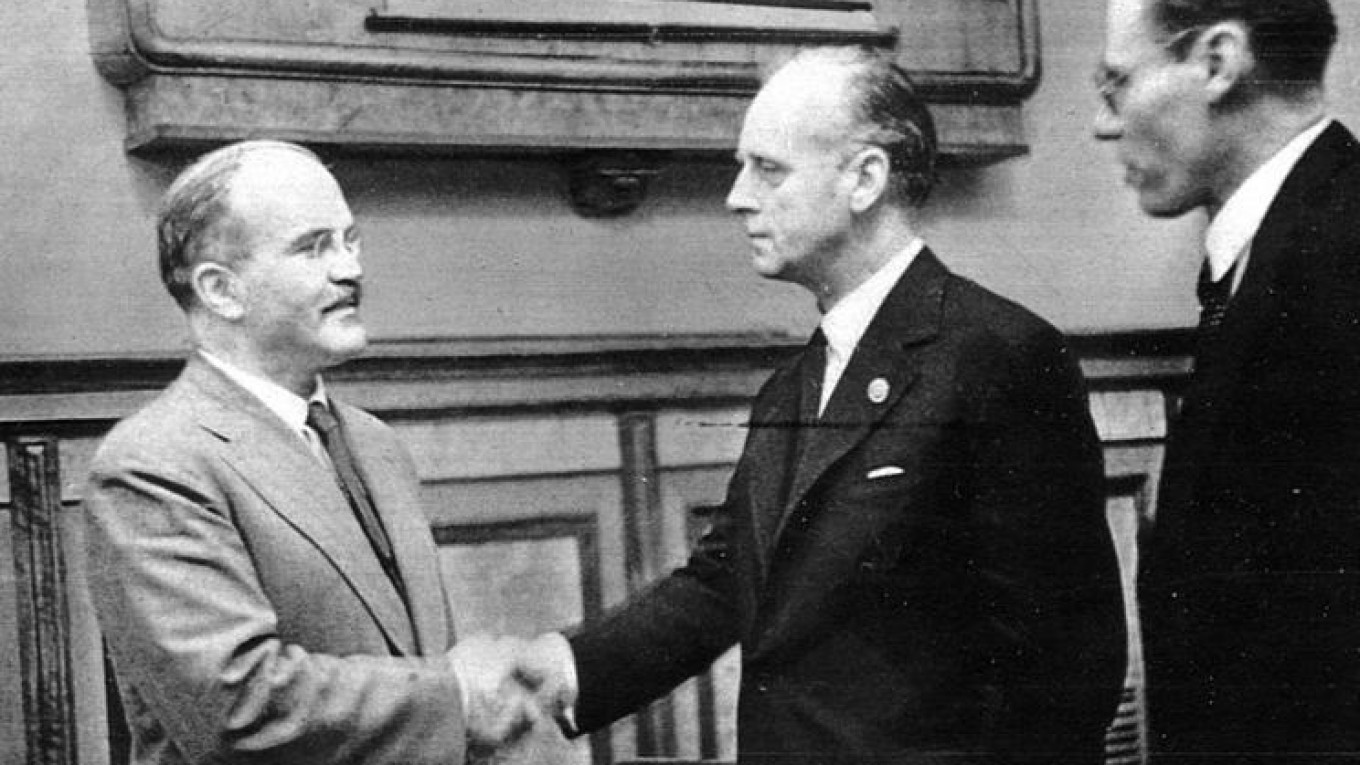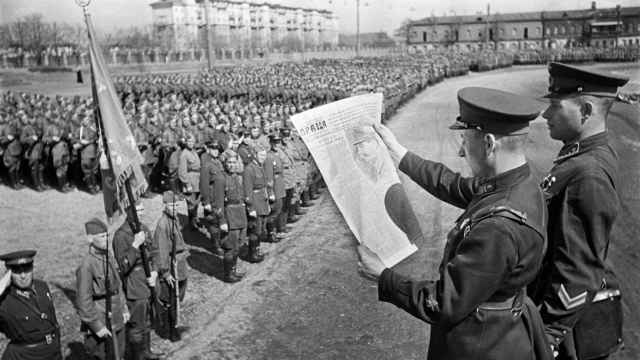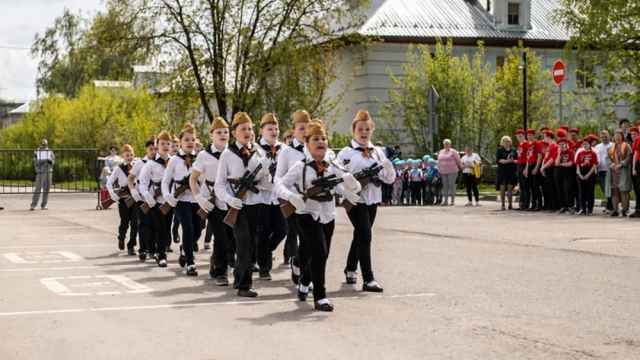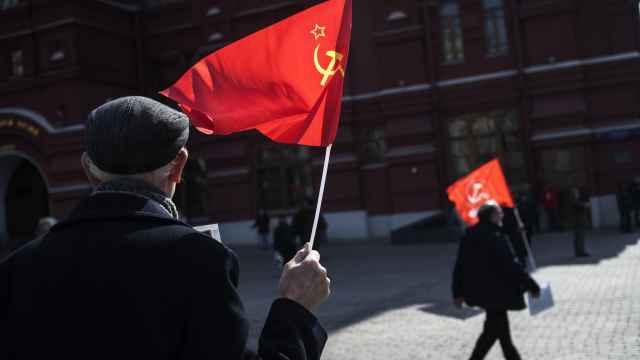Nearly half of Russian citizens approve of 1939's Molotov-Ribbentrop Pact between the Soviet Union and Nazi Germany, a Levada Center poll released on Wednesday has found.
Thirteen percent of Levada’s respondents said they “definitely approve” of the pact, while 32 percent they “somewhat approve” of it.
A combined 17 percent said they “definitely” or “somewhat” disapprove of the treaty that the USSR and Nazi Germany signed on Aug. 23, 1939.
Two-fifths of the 1,600 people polled said they had “heard of” the pact and “think that it happened in real life,” the survey revealed. One-third said they’ve never heard of it, while 17 percent said the pact was a “fake.”
Named after the countries’ respective foreign ministers, the Molotov-Ribbentrop Pact delineated the Soviet and German spheres of interest in Eastern Europe.
President Vladimir Putin defended the pact in 2015, saying Moscow signed it after Western states snubbed its efforts to “create an anti-fascist bloc in Europe.”
While serving as prime minister in 2009, however, he denounced the Molotov-Ribbentrop Pact calling it “collusion to solve one’s problems at others’ expense.”
Wednesday’s poll revealed a 5-percent drop in support for the Soviet-Nazi treaty from its peak in 2015. Levada conducted the latest poll across 48 Russian regions from Aug. 18 to Aug. 22, 2017.
A Message from The Moscow Times:
Dear readers,
We are facing unprecedented challenges. Russia's Prosecutor General's Office has designated The Moscow Times as an "undesirable" organization, criminalizing our work and putting our staff at risk of prosecution. This follows our earlier unjust labeling as a "foreign agent."
These actions are direct attempts to silence independent journalism in Russia. The authorities claim our work "discredits the decisions of the Russian leadership." We see things differently: we strive to provide accurate, unbiased reporting on Russia.
We, the journalists of The Moscow Times, refuse to be silenced. But to continue our work, we need your help.
Your support, no matter how small, makes a world of difference. If you can, please support us monthly starting from just $2. It's quick to set up, and every contribution makes a significant impact.
By supporting The Moscow Times, you're defending open, independent journalism in the face of repression. Thank you for standing with us.
Remind me later.






